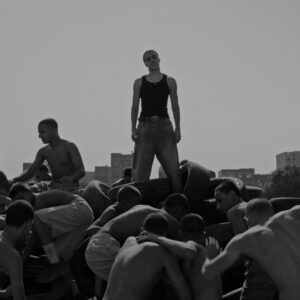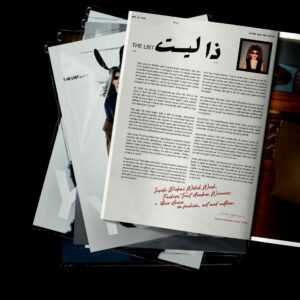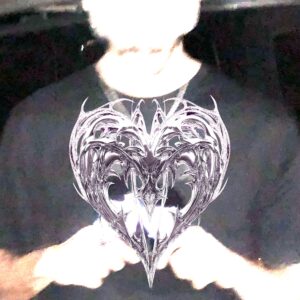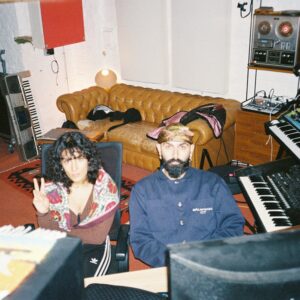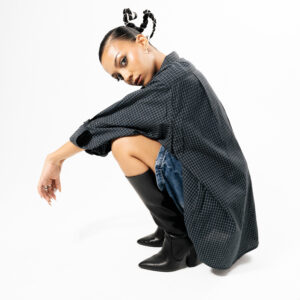In the twilight of a Moroccan sky, a new sound rises – the debut single “DENDEN” by Tawsen (Instagram), which dropped on June 27 as the inaugural statement of his forthcoming album Chokran. Tawsen, the Moroccan-Belgian artist whose very name means “peacock” in Darija, has crafted an anthem that feels both personal and communal. In this cover feature, we trace the threads that weave together DENDEN and the man behind it.
The Peacock’s Colours
The peacock is at once an emblem of beauty, pride, mystery, and transformation. In Moroccan lore it is elegant and rare, almost mythical. When Tawsen chose the bird as his stage identity, he intentionally leaned into these layers. The peacock’s iridescent feathers symbolize every facet of himself: the softness and vulnerability shimmering alongside rage and strength. “I don’t shine to impress,” he tells us, “but to express what’s inside,” he says.
In other words, his music is like the peacock’s plumage – not just decoration, but an unveiling of inner colours. As a figure, Tawsen is poised and proud, a living bird of paradise who refuses to tone down his vibrancy. Through lyrics and imagery, he channels the peacock’s duality: graceful yet bold, familiar yet full of secrets.

This metaphor extends beyond stagecraft into deeper identity. Tawsen’s family name, Taouss, literally means peacock. He rarely separates the man from the myth: the stage becomes a mirror. In performances and videos, the peacock motif recurs as witness and avatar. “The peacock is me,” he says. It is sometimes a character, sometimes a reflection – sometimes proud and vibrant, sometimes wounded and defiant, but always standing tall. This choice of symbol is an act of self-claiming. “I am what I am, multi-hued and unmistakable.”
DENDEN
The word “Denden” itself is onomatopoeic – the thudding rhythm of a heart. In the chorus, Tawsen sings “Gelbi denden ya ma” – in his Darija dialect, “Mama, my heart goes boom-boom.” The refrain feels immediately celebratory, the kind of catchy hook that calls for dance. Yet underneath that festive veil is something more intimate and urgent. As we talked, he described writing DENDEN while back in Morocco: surrounded by life and music, but carrying “a heavy heart.” That contrast – the outward joy of the beat versus the inward ache of the lyrics is the song’s secret.
He recalls the moment of creation as one guided by nostalgia and longing: “My heart was knocking, trying to speak,” he says. The drum-driven arrangement pulses with life – bendir drums and handclaps echoing chaâbi tradition – but Tawsen’s tone is half whispered confession, half triumphant shout. He sees DENDEN as a “powerful” first statement, a bridge between generations. When he plays it for listeners, the hope is they’ll feel that tension in their own veins: the bittersweet mix of love, loss, and fervent pride.
Straddling Two Worlds
The duality of the peacock is more than symbolic – it’s the biography of Tawsen himself. Born to Moroccan parents and raised in Belgium, he inhabits “a third place”, an in-between cultural space of his own making. He describes life between “deux rives” (two shores) as “always arriving and never arriving.” The root of this liminal existence can be felt in every verse of DENDEN and in the very vocabulary he chooses. He speaks comfortably in Darija, French and English, flipping tongues mid-verse as naturally as switching radio stations.
This in-betweenness is not a neat blend, but a productive tension. Belgium provided him with European rhythms and a multilingual ear, while Morocco handed down the cadences of chaâbi and the memory of family gatherings. Yet he’s quick to admit that neither place ever granted him full belonging on its own terms. Feeling only partly accepted by both worlds, he carved out his own intersection – a “third place” where he could be wholly himself. His music dwells in that borderland: melodies that could bloom in Rabat’s old medina or Antwerp’s urban square.

Academic thinkers sometimes call this the “third space” of diaspora identity, where home is not singular but hybrid. For Tawsen it’s a creative advantage. His songs are imbued with stories of longing and homecoming, of searching for self in two territories. Listeners from either side of the Mediterranean will recognize the theme – the echo of cousins, co-workers, or classmates who also learned to be proud of roots in a foreign land. In DENDEN, that experience becomes an anthem, turning a personal heartbeat into a communal drum that others march to.
Bridging the Generations with Chaâbi
At the heart of DENDEN is Morocco’s folk tradition: chaâbi music. This genre, with its bendir drum, clapping rhythms, and emotive Darija verses, is woven into the fabric of Moroccan life. We’ve all encountered chaâbi at street weddings, festivals, or family celebrations. It is communal, unpretentious, and deeply narrative – a storytelling music born in the 1930s that evolved by giving voice to everyday joys and sorrows.
By mixing modern rap and R&B with chaâbi, Tawsen is sending a message to the elders and the youth alike. He frames it not as breaking the old but acknowledging it: “I hear you. I come from you,” he says. Incorporating chaâbi is his way of saying to grandparents and aunts, “You’re here with me.” The chorus of DENDEN nods to those roots with its very sound, while the verses rattle off in the confident rap flow of a new generation. This fusion underscores a key generational shift: the children of diasporas inherit “strength and silence”, as Tawsen notes, but they refuse to stay silent about their pride. Every clap and violin riff is handed down from the past and re-energized with twenty-first-century grit.
Homecoming Creativity
Tawsen didn’t just channel his heritage from afar; he physically returned to the homeland to birth this music. He wrote, composed, and produced DENDEN in Morocco, collaborating with local artists and producers. That choice was deliberate: surrounded by the landscape and people of his family’s origin, he felt an authentic spark that studio calls from Belgium wouldn’t kindle. Being in the same room with Moroccan musicians brought a tangible tradition into the creative process.
In these sessions, Tawsen found an emotional unlocking. There’s a certain spirit in the air of his motherland that can’t be replicated. As he put it, being there gave the song a more “real” sound and vibe. Each instrument – from a goat-skin drum to a traditional flute – carried the weight of history, and he understood instantly why it was needed.
The Visual Manifesto
The spirit of DENDEN didn’t stop at audio: its music video, directed by noted Moroccan auteur Farid Malki, is a rolling tableau of Moroccan iconography, from tradition to pop culture. Watching it feels like skimming a rich photo album of the nation’s heart – one that connects the young and old, the city and desert, the conventional and the edgy.
We see l’baroud, the ceremonial black powder that shoots from earthenware cannons, symbolizing fire, honour, and ancestral valour. Tawsen explains that seeing the baroud as a child felt almost spiritual. In the video, a burst of that smoke heralds his appearance, a declaration of his reclaiming of power. The chikhates – the flamenco-like female folk singers and dancers who have historically been voices of both celebration and protest – shimmer in sequined costumes, reminding viewers of the deep veins of resistance and joy in Moroccan folklore. The red tarbouche and flowing white jellaba (fez and hooded robe) that appear in other scenes are visual shorthand for dignity and timeless tradition.
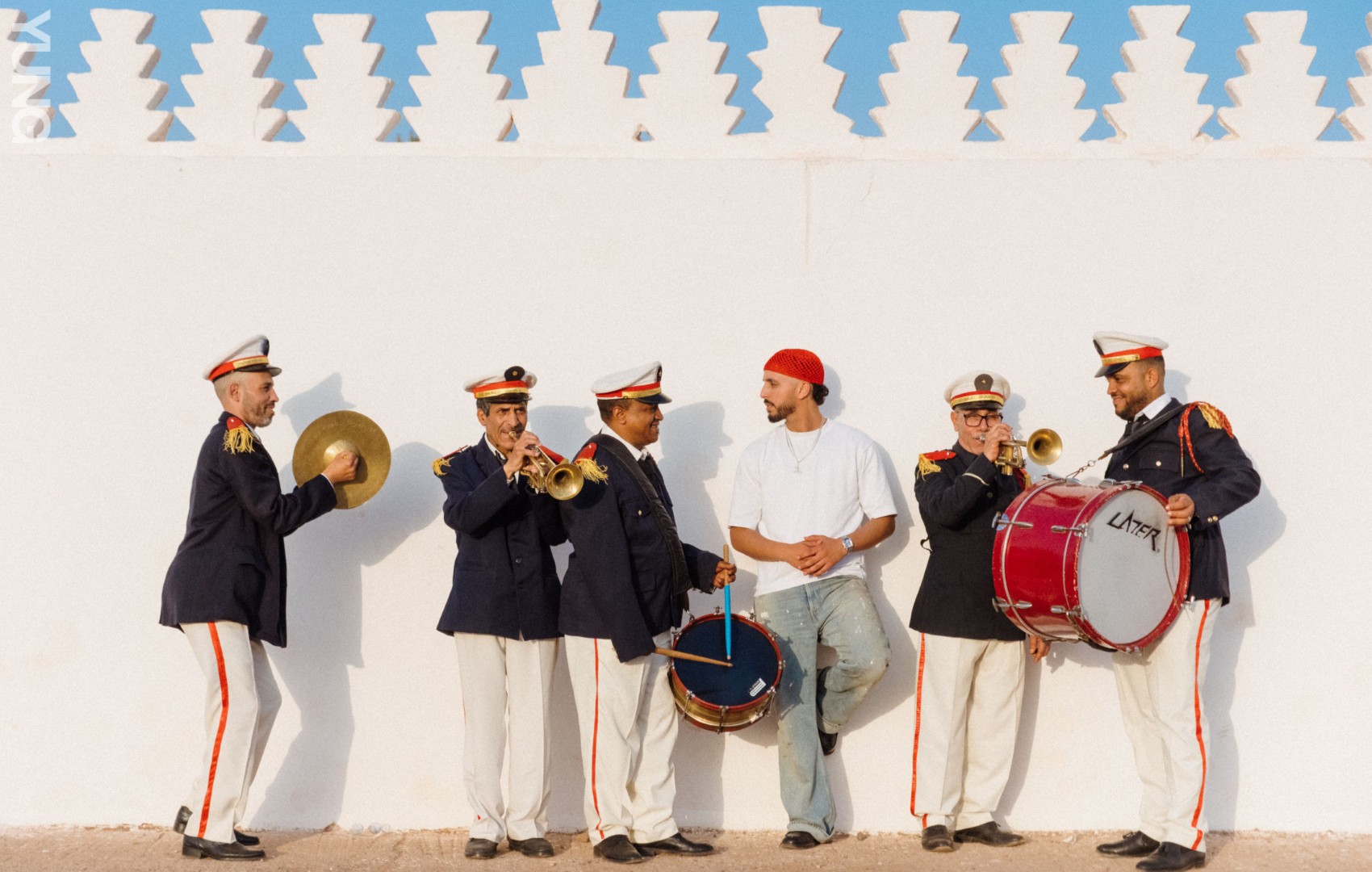
Between these images of heritage, the video cuts to modern life: youths crouched around a drifting car on a moonlit outskirts road, a board game of parchi played at a neighbourhood cafe, a faded bus barrelling through the medina with graffiti and dreams. Even football shirts come into focus – a universal symbol for unity that Moroccans (like the rest of the world) live and breathe. And throughout, the peacock motif glimmers – on pillows, painted murals, and ultimately in the stylized ‘taouss’ logo stamped onto a banquet dish (the tabsil taouss, laden with sweets) that sits like a throne.
Tawsen spoke about collaborating with Malki to get this feeling just right. They talked about emotion, timelessness, and evoking a shared memory passed down like a dream from grandparents to grandkids. Farid Malki’s lens does just that, blending scenes that feel old – a desert caravan, nomadic Tuareg warriors, brooding cat-eyes in the souk – with scenes that feel urgent and new.
Chokran: Gratitude and Closure
If “DENDEN” is the peacock flaring its plume, then the album Chokran (Arabic for “thank you”) is the voice that says why. Tawsen describes Chokran as an album of memory, gratitude, and self-empowerment. The very concept of “thank you” in his view is radical – a commonplace word that he wants to feel in his bones. It’s his way of tilting back the lens on the entire journey to date.
Who is he thanking? Everyone who has been there from the beginning: his family, who carried the memories of home across the sea; the fans, who have made space for him; even himself, for surviving the alienation of growing up between cultures. Saying “chokran” is his way of moving forward, of closing a chapter. There is a sense of catharsis: an immigrant’s version of “closure” by bowing deeply to the past. It might sound subtle, but framing the album as a salute is powerful. It turns what could have been a self-centred introduction into a collective celebration.
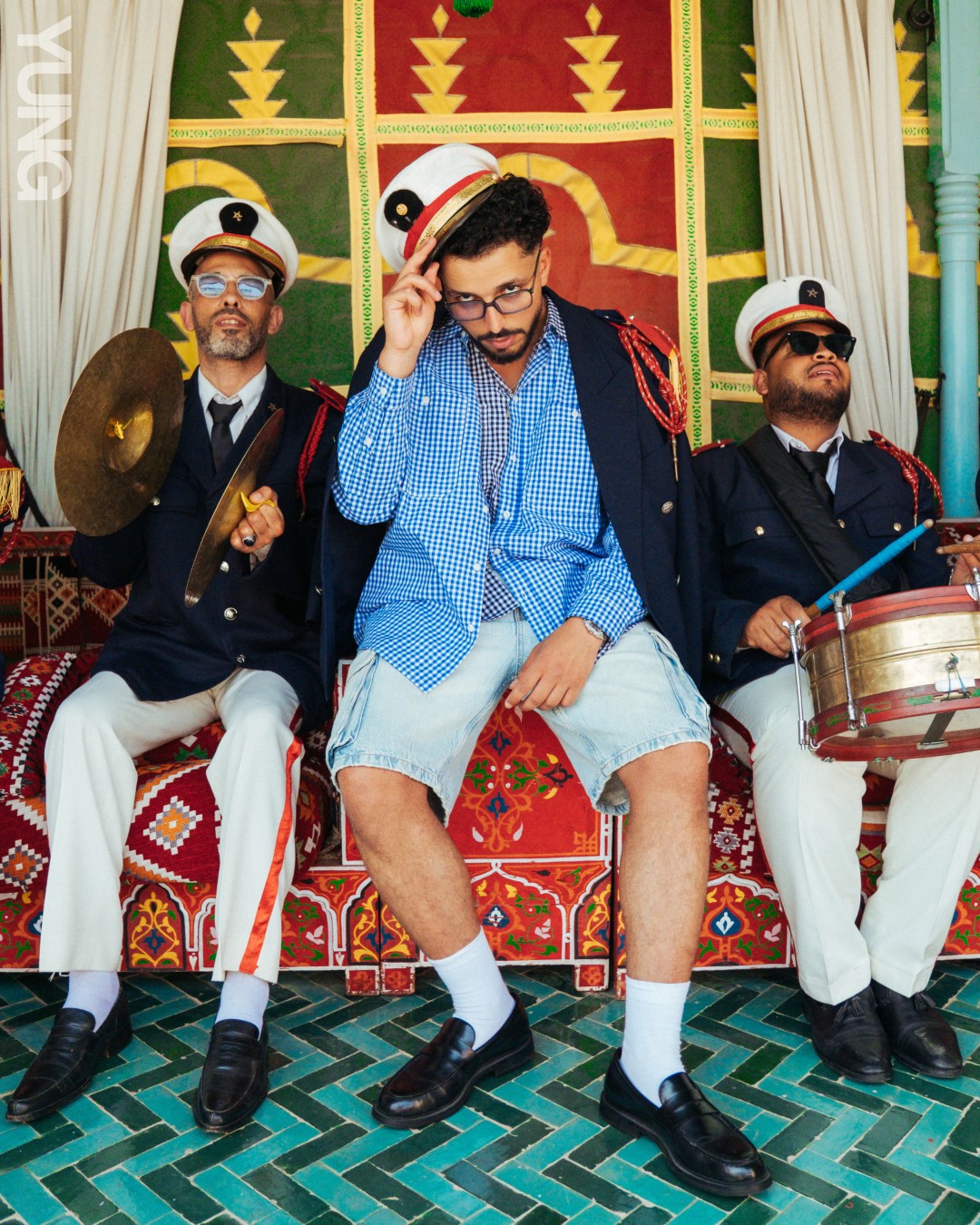
When he talks about the feeling he hopes the album imparts, it’s “peace after the storm.” Not a quiet dormancy, but the exhausted satisfaction that follows struggle and growth. In a way, DENDEN was the storm – the pounding heart and prideful roar – and Chokran promises the sunrise. By the end of the album, he wants listeners to feel seen, heard, and strong, as if they’ve closed their own chapter. That goal brings us back to the single: as uplifting as the beat is, it begins the conversation that the album will continue. Together they ask: what would it take for all these voices to finally say, “Yes, I’m grateful… and finally at peace”?
Multilingual Chorus
Language itself is one more palette Tawsen mixes from. In DENDEN and the upcoming album, he shifts fluidly between Darija, French, and English. Each tongue grants him a different key: the earthy authenticity of his mother tongue, the poetic cadences of French, the global shorthand of English. He insists that he doesn’t carefully plan these switches – “it just feels natural,” he says – but the effect is very deliberate.
Darija carries weight here. It’s the language of the heart-beat, of his childhood lullabies and family dinners. When he cries “ya ma” (“oh mother”) in the chorus, the vowel shapes and rhythm are pure Moroccan. French might appear in a verse to tap into a broader lyrical tradition or to rhyme in a new way. English lines nod to the global hip-hop tradition. Together they form a polyglot resonance that mirrors his biography: one line of rap could just as easily be followed by a soulful R&B hook.
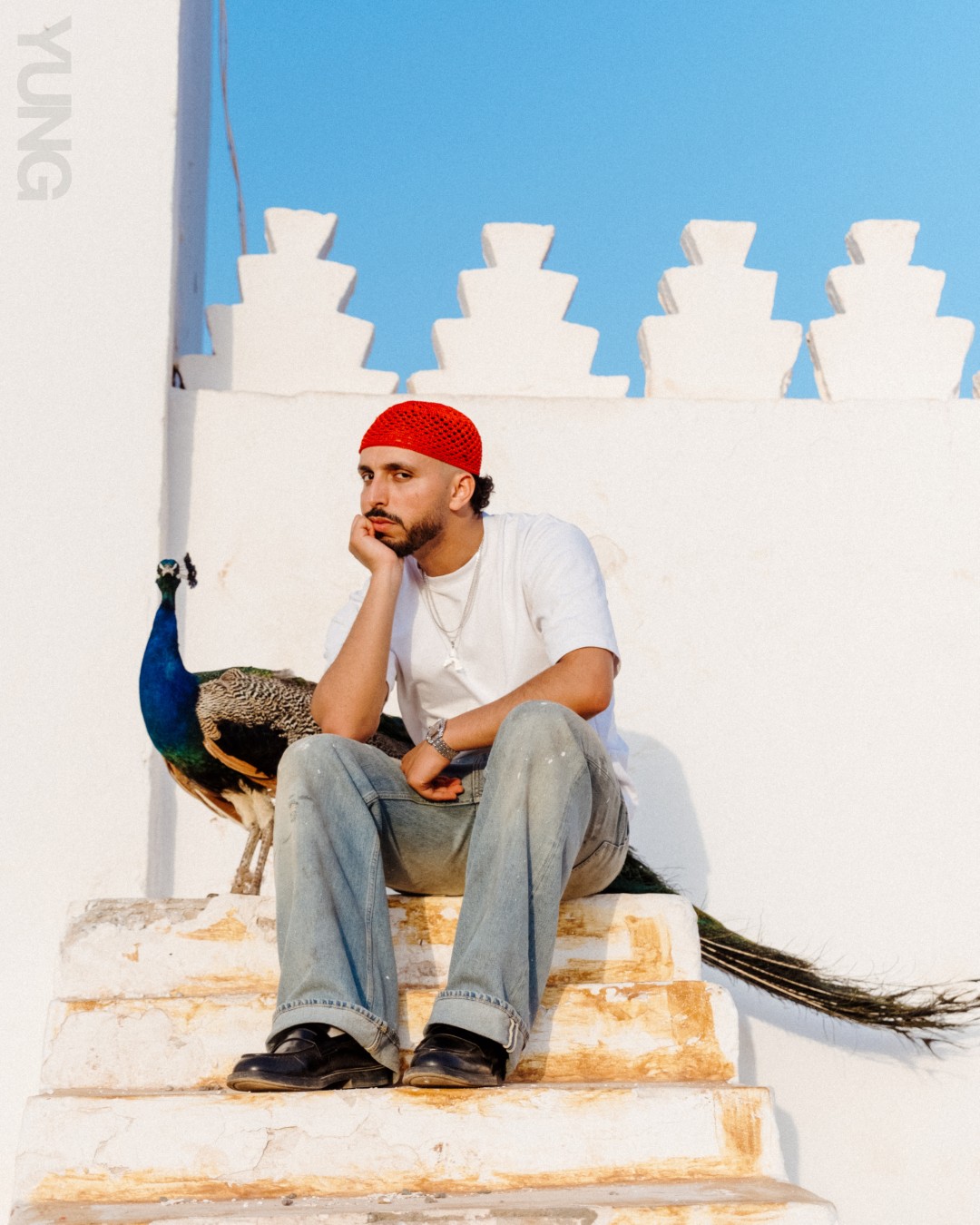
This code-switching also reminds listeners of the bridges in his identity. Fans can find themselves jumping from Casablanca to Liège in a single stanza, from one emotional register to another. It’s an invitation to journey with him. The languages do not clash but layer, like different instruments in an ensemble. They allow the song to breathe on multiple continents at once.
Peace After the Storm
Tawsen’s story is still being written, but if DENDEN is any measure, it will be written loudly – and with colour. He represents a new vanguard of artists who carry the histories of migration and diaspora as badges of honour rather than barriers. His upcoming album Chokran promises to fill the chapter between DENDEN and “thank you” with more heartbeats and voices. By 2025’s end, we should expect to feel that storm break and calm in our own spirits, just as he hopes his listeners will.
DENDEN sounds like Moroccan tradition reimagined, but it feels like the collective pulse of a people who have always known pride in silence but are now learning to sing it out loud. In this debut single, Tawsen is not just declaring himself; he’s declaring for all of us in the diaspora, all who straddle cultures, all who have hearts that thump to the song of two homelands.
For more stories of music from across the region and beyond, visit our dedicated archives.

